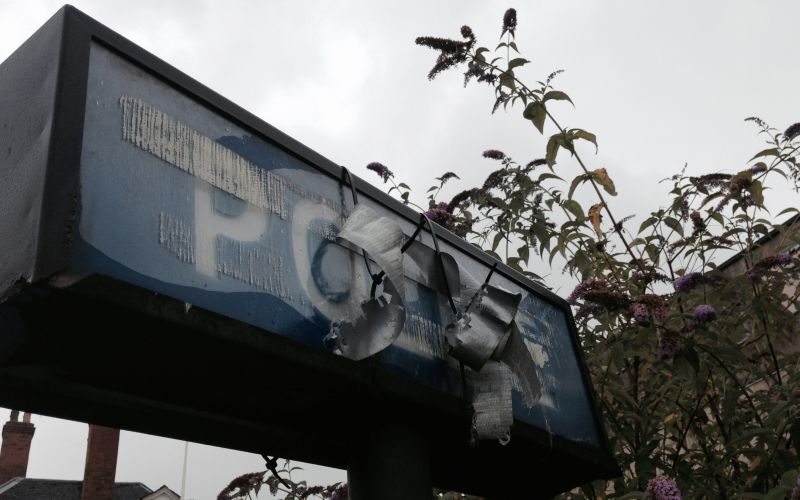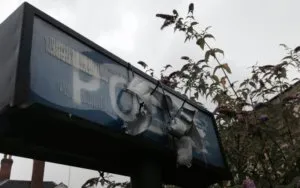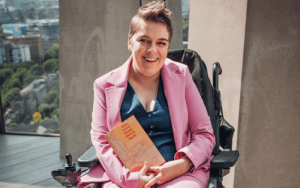Police chiefs have refused to explain why the number of cases of disability hate crime being passed to prosecutors has fallen for the fifth year in a row.
It is the second year running that the National Police Chiefs Council (NPCC) has refused to provide any explanation for why police forces are passing significantly fewer cases to the Crown Prosecution Service (CPS).
The number of disability hate crime cases referred to prosecutors by police forces for a decision on whether to charge the alleged offender fell by 13 per cent to just 320 cases in 2019-20, and it is now only about a third of the level it was in 2014-15 (924 cases).
Last week, CPS suggested that the continuing police failure on disability hate crime was the key reason why prosecutions of such cases had fallen from 19 per cent in 2016-17 (1,009 prosecutions and 5,254 recorded offences) to just four per cent (360 prosecutions and 8,469 recorded offences) in just three years.
The Home Office has also refused to offer any explanation for the fall, or to say if it was due to a fall in police numbers, or even if it was concerned about the issue.
This week, an NPCC spokesperson refused to answer questions about the figures, other than cutting and pasting answers his office had produced in response to completely different hate crime figures obtained by a charity earlier this month.
Asked if the falling numbers of police referrals was a concern, the NPCC said that “statistics can also represent real rises in hate crime, which do concern us”.
But NPCC did say that it had agreed to “undertake a national audit to help identify any issues that need attention”, which appears to include the drop in referrals.
Disabled members of the Disability Hate Crime Network this week expressed alarm at the police failings.
Sue Groves, chair of Medway Independent Police Advisory Group and an independent critical incident advisor to Kent Police, said the drop in police referrals to CPS was “very worrying and will only serve to increase the concerns victims of disability hate crime have around reporting incidents to the police that they will receive an appropriate response”.
She said she had spoken directly to senior officers about the impact of disability hate crime on disabled people “and how their response can be critical to the outcome of the case”.
Groves was herself a victim of a disability hate crime, in London, and the four-week delay before it was investigated as a hate crime – after originally being told by the Metropolitan police that it was “just an on-street altercation” – meant any CCTV evidence was no longer available and the investigation failed to progress.
She said: “I have been able to use this experience to feed into improvements within Kent Police, but others are not so fortunate, and thus there is a desperate need for a concerted national push to ensure all disability hate crime reports are correctly flagged from the outset, processed timeously, being mindful of the very limited time window for evidence gathering… and early referral to CPS to ensure that there is sufficient time built in to carry through to prosecution.”
Stephen Brookes, a former adviser to the CPS and police on disability hate crime, said the “police response right now tends to be that they have not the resources to deal with certain types of crime.
“However, at a time with COVID driving a substantial hate agenda particularly in terms of peer to peer abuse, they should be taking far more notice of disability hate crime.”
David Wilkin, a coordinator of the network and author of a book on disability hate crime on public transport, said there was an “urgent need to speak out”.
He said: “We need real world accounts to bring realistic action and make the authorities buck up their ideas.”
Another disabled network member, David Gillon, said he was particularly concerned by reports that some officers were removing the “tags” or markers that show that offences should be treated as disability hate crimes, which he said not only affects those cases but also “potentially distorts the statistics about how common this is, and the margin of police failure”.
A note from the editor:
Please consider making a voluntary financial contribution to support the work of DNS and allow it to continue producing independent, carefully-researched news stories that focus on the lives and rights of disabled people and their user-led organisations.
Please do not contribute if you cannot afford to do so, and please note that DNS is not a charity. It is run and owned by disabled journalist John Pring and has been from its launch in April 2009.
Thank you for anything you can do to support the work of DNS…

 Ministers are considering further extension to disability hate crime laws, after pledge on ‘aggravated’ offences
Ministers are considering further extension to disability hate crime laws, after pledge on ‘aggravated’ offences Disabled author swamped by hate speech after social media post on feminism
Disabled author swamped by hate speech after social media post on feminism Abuse of disabled supporters at live sports events is growing problem, survey finds
Abuse of disabled supporters at live sports events is growing problem, survey finds